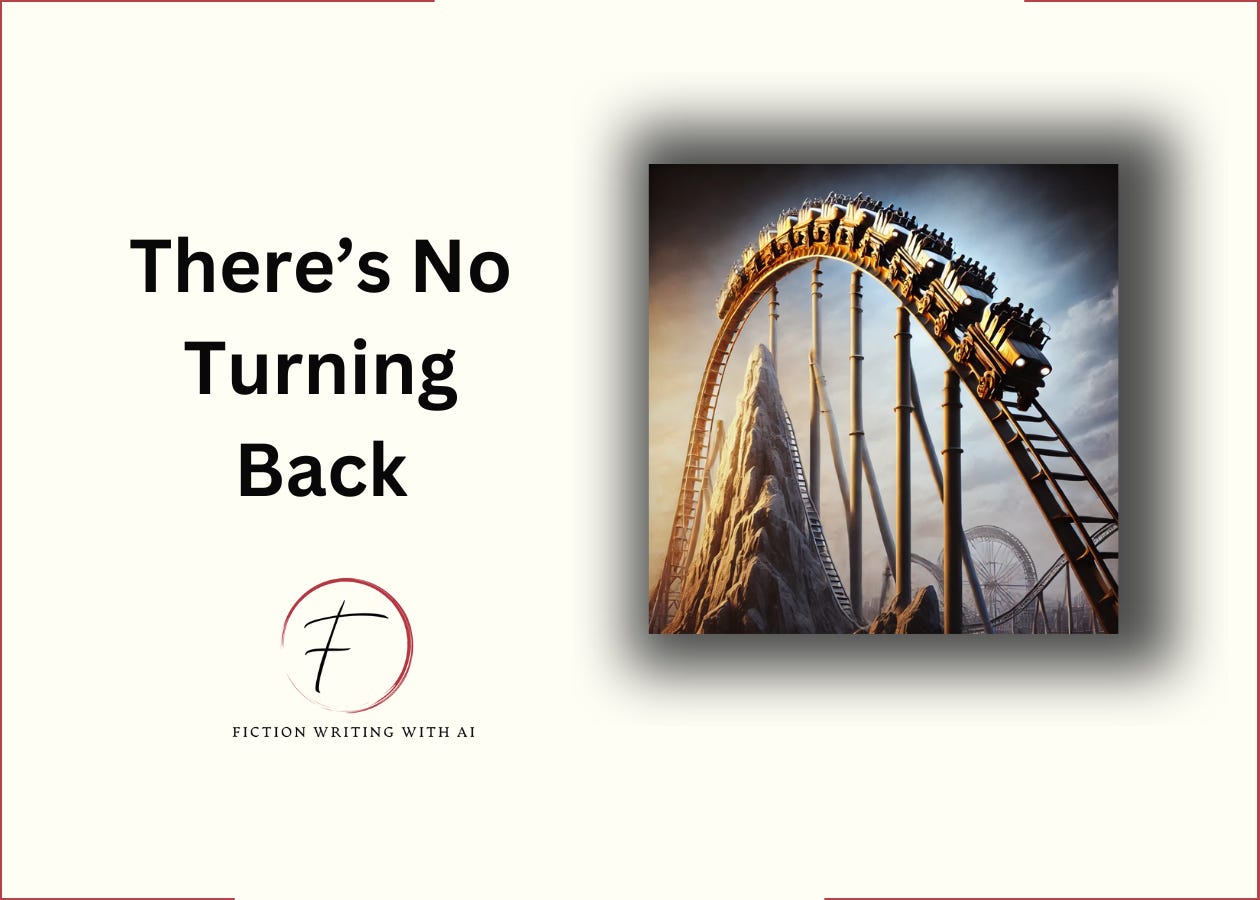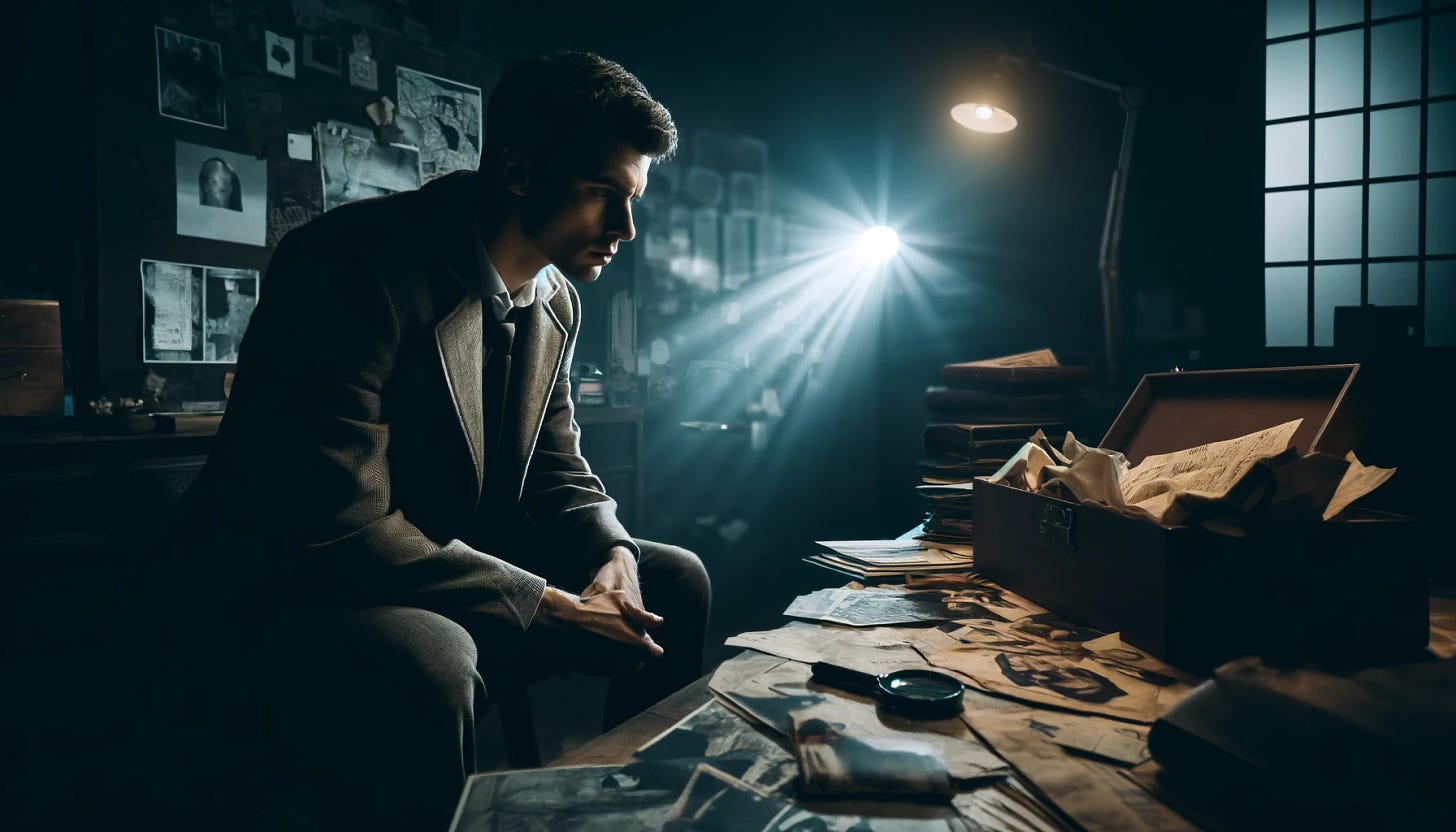Hey there!
Imagine your story is a roller coaster.
The first act is the slow climb to the top. The third act is the wild rush to the finish. The Midpoint? That's the moment you crest the hill. The split second where your stomach drops and you realize there's no turning back.
Last time, we covered the Fun and Games beat.
You've been steadily climbing, giving your readers a taste of the excitement to come. Now it's time to pick up the pace. As you reach the Midpoint, your narrative coaster should accelerate. The click-click-click of the climb gives way to the whoosh of freefall.
A strong Midpoint does three things:
It cranks up the stakes
It forces your protagonist to go all-in on their goal
It takes the story in a direction readers didn't see coming
Think about the movie"Parasite." Remember when the old housekeeper shows up during that rainstorm? The whole con job starts falling apart right there. Or in "Arrival," when Louise Banks finally meets the aliens face-to-face. Suddenly, language and time don't mean what she thought they did. These scenes reshape the entire story.
Now, let's look at 7 ways to create a Midpoint that will keep readers holding on for dear life. Each comes with an AI prompt to help you design the perfect drop for your story's roller coaster.
Here we go.
1. The Mirror Moment
This is the moment your protagonist realizes they're in way over their head.
In "The Hunt for Red October," Jack Ryan gets it. The Soviet defector's plan isn't just about a submarine. It could change the entire course of the Cold War.
Writers often mess this up by making it too obvious. For example, they'll have the character stare into an actual mirror or say their realization out loud.
Instead, show it through action. Maybe Jack's hands shake as he pours a drink. Or he stares at a map of the Atlantic, his mind racing with the implications.
Prompt:
Write a [NUMBER] word scene where [PROTAGONIST NAME] realizes [TRUTH ABOUT THEIR SITUATION].
Show their internal reaction through physical actions and decisions, without explicitly stating their realization.
2. The False Defeat
Everything falls apart for your protagonist here.
In "Along Came a Spider," Detective Alex Cross hits rock bottom. The trail's gone cold. The victim's probably dead. He's failed.
This moment changes your protagonist's motivation. It's not about solving a case anymore. It's about redemption. It's Alex proving to himself he's not a failure.
Prompt:
Create a [NUMBER] word scene where [PROTAGONIST NAME] experiences a major setback in their goal to [MAIN STORY GOAL].
Describe their emotional state and physical surroundings.
Then, show a small discovery or realization that gives them hope to continue.
3. Raising The Stakes
Whatever your protagonist thought was at risk? Make it ten times worse.
In Dean Koontz's "Watchers," a hunt for a smart dog turns into a fight to stop a monster from destroying humanity.
This keeps readers hooked through the second half of your book. A simple chase becomes a race to save the world.
Prompt:
Keep reading with a 7-day free trial
Subscribe to Fiction Writing With AI to keep reading this post and get 7 days of free access to the full post archives.





